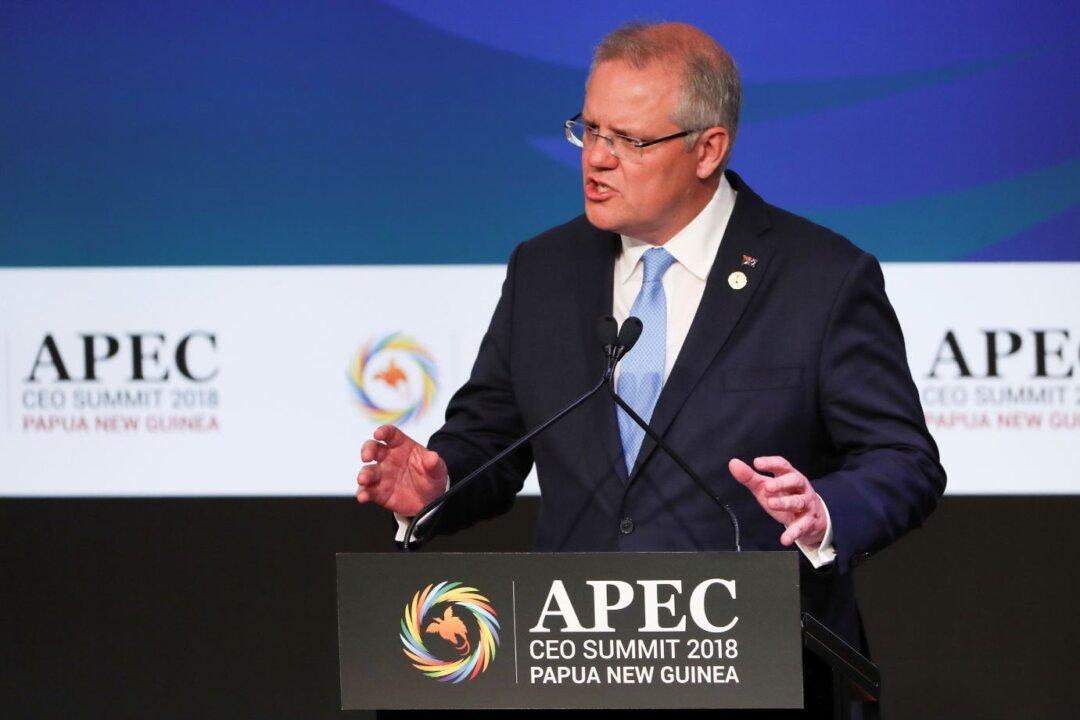Support for Australia’s conservative government edged higher over the last two weeks, a widely watched poll showed on Jan. 29, boosting Prime Minister Scott Morrison’s reelection prospects less than four months out from the next election.
The Newspoll published in The Australian newspaper showed the Liberal-National coalition government trails the main opposition Labor party by a margin of 53 percent to 47 percent on a two-party preferred basis under Australia’s preferential voting system, where votes from minor parties are redistributed.





